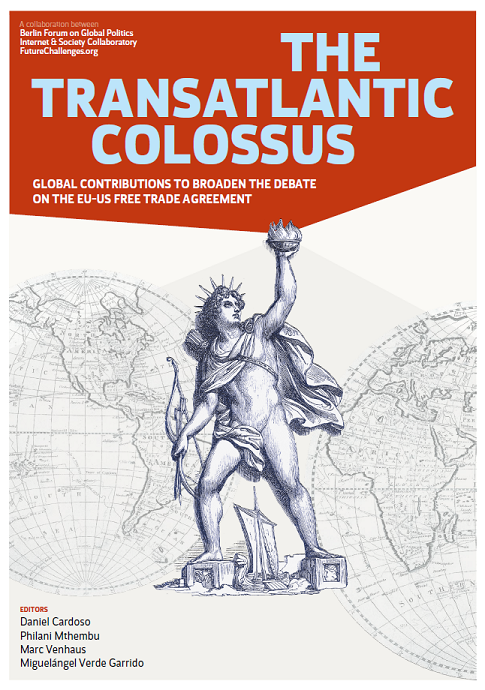by Werner Hager and Matthieu Choblet
a follow-up article on our previous publication on TTIP, originally published on ttip2014.eu
European integration has many purposes, among which maintaining peace is certainly the most valuable. Yet, the main incentives for integration by means of the European Community and the European Union were the growing economic ties between the many states of Europe. The Transatlantic Trade and Investment Partnership (TTIP), which the Commission is currently negotiating with representatives of the US government and the industry on both sides of the Atlantic, is similar to the project of European integration, to the extent that it aims at creating a transatlantic single market. The underlying assumption of such a project would be that it leads to the creation of additional trade, which in turn would strengthen the transatlantic relationship.
Last year a couple of economic studies have been produced which focus on quantitative assessments of the potential economic effects of TTIP. The numbers we find in these studies, though they are to be used with some reserve, show disconcerting results. Basically two scenarios can be identified: In the first case, TTIP has no significant impact on the economy at all; in the second case and taking into account a ‘comprehensive liberalization’ scenario, the alteration of economic growth remains mediocre, but trade relations are significantly affected. It would appear however that TTIP is not fitting mechanism to create trade, but rather something that would significantly divert it.
Diverting trade to elsewhere is not the same as growth
In economic sciences it is common to differentiate between ‘trade creation’ and ‘trade diversion’. The first one is obviously the desideratum of a liberal trade-policy. Conversely, ‘trade diversion’ denominates the phenomenon of new trade relations simply substituting the existing ones without achieving a net gain in trade volume. The respective data brought forward by the IFO-Institute and the Bertelsmann Foundation has often been quoted and is easily accessible online. To name but a few: US-British trade would increase by about 60 percent, US-German trade would gain up to 94 percent. At the same time UK-German trade would decrease by 41 percent and UK-Irish trade would even lose roughly 46 percent.
The outcome is clear: while trade between individual European countries and the US would increase, trade within the EU would sharply decline. If we work on the premises that intra-European trade is an essential constituent of European integration, the latter would lose much of its importance. The financial crisis in the euro area is already giving us a foretaste of what it means when the European project becomes a vague and ephemeral idea. It is already a fact that the markets of the Euro-periphery are losing their relevance for exports from core countries, which lead many citizens to believe that mutual support isn’t worth the effort. Having said that, the authors of this article do not wish to see European integration as a project which exclusively relies on the craving for business and profit. However, trade diversion through TTIP does not just affect European identity, but it also endangers the protection of environment and labour legislation.
„TTIP: What is a trade deal for if it doesn’t even create trade?“ weiterlesen

